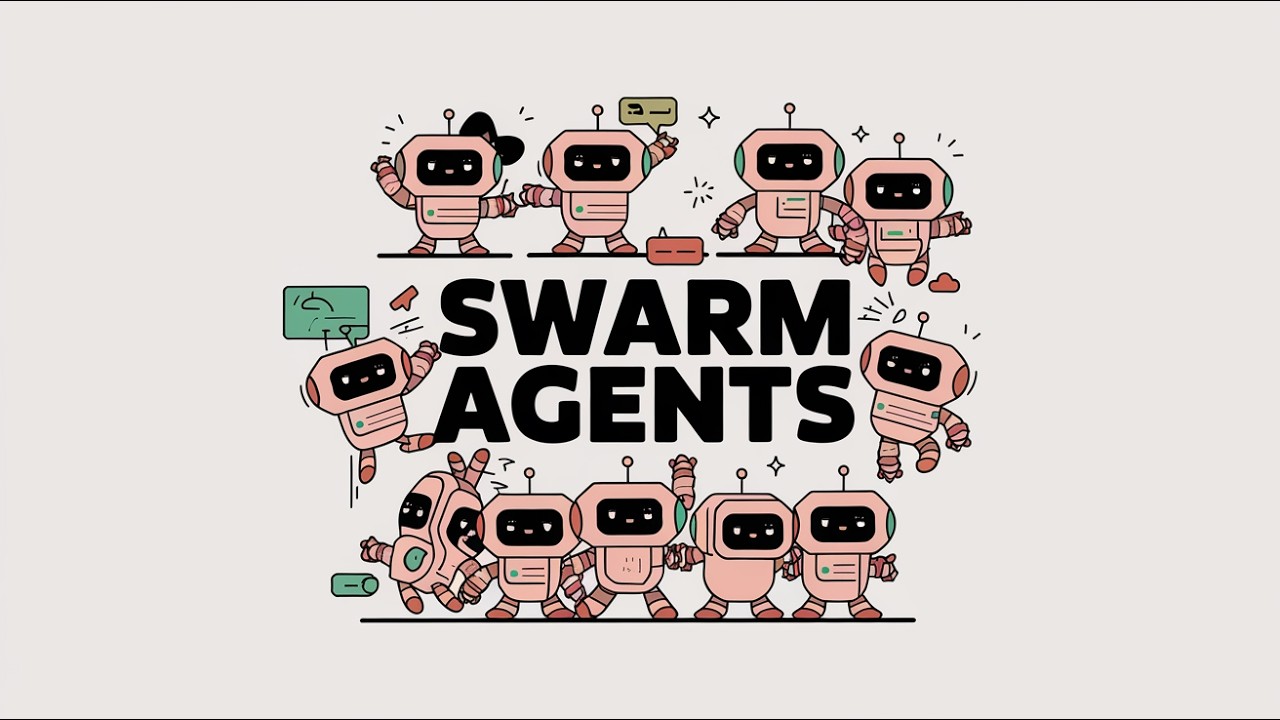The video introduces the OpenAI Swarm library, an open-source tool for creating multi-agent systems, showcasing its ease of use through examples like basic chat functions, shopping cart systems, and customer service agent handoffs. The presenter emphasizes the library’s flexibility and practical applications, inviting viewers to explore further tutorials and resources for building their own agent-based projects.
In the video, the presenter introduces the OpenAI Swarm library, a lightweight multi-agent orchestration tool designed for creating agent-based systems. The library is open-source and available on GitHub, where users can download various examples to learn and experiment with. The video covers a range of functionalities, from basic chat capabilities to more complex applications like customer service systems and RPG games. The presenter emphasizes the ease of use and flexibility of the library, making it accessible for developers looking to implement multi-agent interactions.
The first example demonstrated is a basic chat function, where users can define their swarm and agents without needing to specify tools. The Swarm library automatically defines functions based on docstrings, simplifying the process for developers. The presenter showcases how to create functions like getting the current time or calculating values, and how the agent can interact with users through a chat loop. This example highlights the library’s ability to manage message history according to the user’s preferences, allowing for a customizable experience.
Next, the video explores the use of context variables, which enable agents to pass and update information between function calls. A shopping cart system is implemented to illustrate this feature, where the agent can extract user input and maintain context throughout the interaction. The presenter runs a demonstration where users can view products, add items to their cart, and check their cart contents, showcasing the seamless flow of information between functions. This example emphasizes the practical applications of context management in creating interactive systems.
The video also covers more advanced examples, such as agent handoff in customer service scenarios. Specialized agents for tech support and billing are created, each with distinct instructions and functions. The presenter demonstrates how a triage agent can transfer users to the appropriate support agent based on their needs. This showcases the library’s capability to handle complex multi-agent interactions and the potential for building comprehensive customer service platforms.
Finally, the presenter highlights additional examples, including an RPG game where agents manage game states and player interactions. The video concludes with an invitation to explore the THX cursor course, which offers in-depth tutorials on building agents with the OpenAI Swarm library. The course is designed to empower users to create their own projects and learn at their own pace, with numerous independent chapters available. The presenter encourages viewers to visit their website for more coding resources and expresses gratitude for the audience’s engagement.
